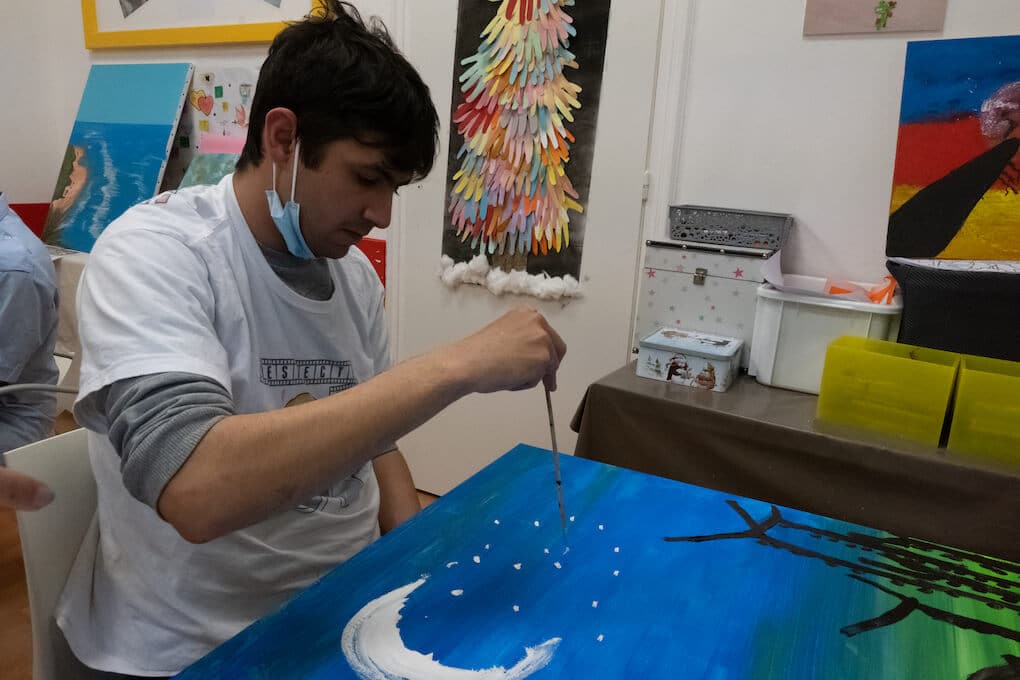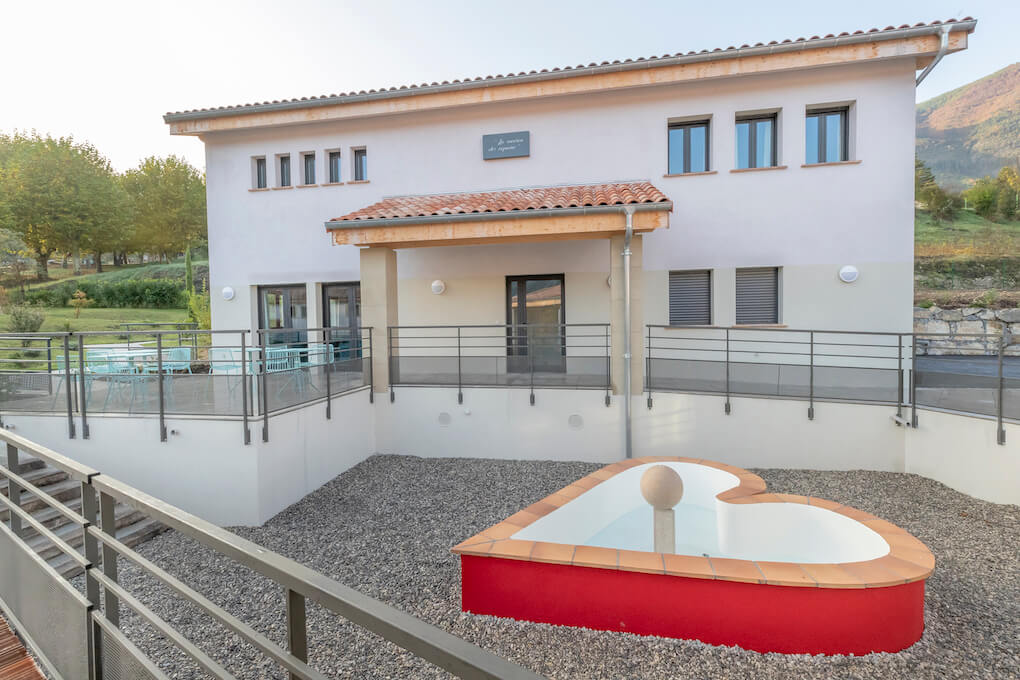Monaco Disease Power: caring for young people with disabilities

The structure is the driving force behind two residential centres in the Alpes de Haute Provence, and a day centre in Monaco.
This month’s article in our new series about charities in the Principality and on the Riviera, focuses on Monaco Disease Power, created in 2007.
A peaceful haven, right in the heart of Monte-Carlo. The Monaco Disease Power charity has been taking care of young people with disabilities for fifteen years, working alongside specialised, medical structures.
These young people are like everyone else. They want to meet up with friends, have activities…
Muriel Natali-Laure, President of Monaco Disease Power
The instigator of the project is Muriel Natali-Laure, herself the mother of a young girl with a disability. During her daughter’s childhood, she realised that there was no care provision to help families when the specialised structures were closed, i.e. on Wednesday afternoons, Saturdays and during school holidays: “The usual kids’ clubs do accept disabled children, but some disabilities require special equipment, and they only take children up to twelve years old.”

SEE ALSO: Monaco’s actual Guardian Angels: helping the Riviera’s most disadvantaged
Neither a specialised structure nor daycare centre, Monaco Disease Power organises a whole range of activities for its members on the Riviera (aged three to thirty) : hiking, outings to the swimming pool and the beach, museum visits, excursions, cinema, mini-golf, yoga, painting workshops, cooking workshops, sailing courses (in partnership with the Yacht Club de Monaco), learning everyday skills, even donkey rides.
Integration and socialisation
“These young people are like everyone else,” says Muriel. “They want to meet up with friends, have activities…” The aim is therefore to enable members with mental disabilities and/or autism to work on integration and socialisation. Teaching them how to become more independent, while taking their disability into account.
And it works! Gil, 25, suffers from an intellectual deficiency. Along with Nour Eddine, who takes care of him in the centre, he tells us about his favourite activities. Eating, of course, and preferably pizza! But the very cheerful young man also loves puzzles, the beach, cycling, horseriding and yoga.

For parents, the structure also provides respite on a daily basis. Amel, who has not yet found a place in a specialised structure for adults for Djilalli, her 27-year-old autistic son, can attest to this. “He likes to come here, which is great in itself, because when he doesn’t like something, he’ll just refuse. But he’s really happy here! He loves the cookery workshops and recreating recipes at home. I’m grateful to the charity for being here. It’s a real boon during the school holidays: looking after our youngsters at home can be a little complicated, especially for those of us who work. Monaco Disease Power has done a lot for our children.”

SEE ALSO: PORTRAIT. Bouran Bouery (Friends of Lebanon Monaco), acting to help a traumatised population
Young autistic people make up nearly 90% of the members. The association works closely with Professor Catherine Barthélémy, child psychiatrist and professor of medicine emeritus at Tours regional university hospital (CHRU), who specialises in autism. “She is the leading authority in France, but also internationally,” adds Muriel.
The president of the association has also built a strong team to make sure the young people are well looked after. Dr. Cinzia Pierraccini, a neuropsychiatrist in Montelupo (Tuscany), visits the structure regularly, providing input and advice to the support staff who work there, and who give each youngster individual support.
Coping with the shortage of places
This long-term effort, which provides regular support for 25 young people, a dozen per day, is made possible by the many grants that the association receives. In addition to an annual subsidy from the Prince’s Government, Monaco Disease Power can count on the support of many organisations, such as the Monaco Red Cross, the Cuomo Foundation, Salus Charity Foundation, the Sancta Devota Foundation and the Boustany Foundation.
This provides financial support for the charity, which helps families as much as possible while waiting for a place to become available in a specialised structure. In France, legislation known as the “Creton” amendment of 13 January 1989 enables young adults to remain in structures and services for children with disabilities, pending a place becoming available in a facility for adults. Previously, they had to leave the establishment at the age of twenty.
SEE ALSO: Monaco Disease Power’s annual charity dinner has a taste of Scotland
How can we help?
The reality is that there are still too few places in specialised structures to cope with the demand. The Maison Départementale des Personnes Handicapées now lists about fifty structures for adults with disabilities throughout the Alpes-Maritimes department. But the geographical distance, the limited number of places and the capacity to accommodate different types of disability can quickly become an obstacle for families.

Muriel Natali-Laure has a project that is about to become a reality: to build a third house in Annot, in the Alpes de Haute-Provence, which could accommodate young people with autistic disorders and their companions in inclusive housing, in the same way as the Maison d’Amélie and the Maison des Copains. In theory, this new establishment should come into being soon, with construction work scheduled to start in 2023.
If you wish to support Monaco Disease Power and its projects, you can make a donation using the form online. But for Muriel Natali-Laure, it would be even better to meet the members of the charity and learn more about its activities.










